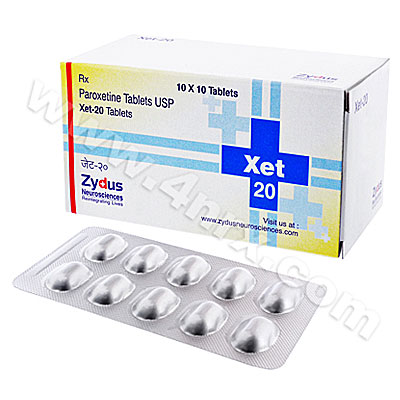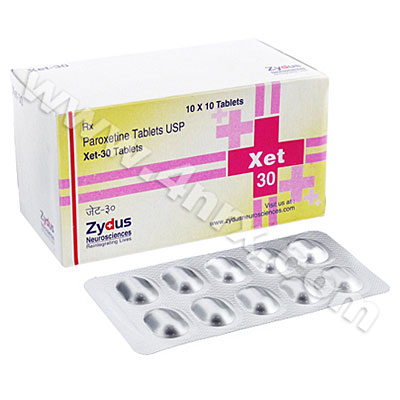 |
Home  Antidepressants Antidepressants  Xet (Paroxetine) Xet (Paroxetine) |
|
|||||||||
|
Xet (Paroxetine)
What is Xet (Paroxetine) used for? Xet (Paroxetine) is a type of antidepressant that is effective in treating the symptoms of various mental disorders, such as depression, social phobia, panic disorder, posttraumatic stress disorder or obsessive compulsive disorder. It is in a class of medications called selective serotonin reuptake inhibitors, or SSRIs, which help to increase the quantity in the brain of a natural substance known as serotonin, which can help to maintain mental balance. This drug is also used to treat premenstrual dysphoric disorder. How should I use Xet (Paroxetine)? Xet (Paroxetine) comes in the form of tablets, which are taken orally. In order to avoid drowsiness, your physician may instruct you to take this drug once daily. If this drug is being used to treat premenstrual dysphoric disorder, your physician may direct you to take this drug each day of the month or for 2 weeks prior to your period. However, the exact dosage varies depending on the severity of the condition requiring treatment, and patients should always consult their physician before taking this drug so that the correct amount can be prescribed. What are the side effects of Xet (Paroxetine)? Xet (Paroxetine) may cause some side effects to occur, such as:
You should consult your physician immediately if any of these side effects persist or worsen, or if you notice severe mood changes, shakiness, changes in vision, easy bruising or seizures. Please Note Strictly follow all instructions provided to you by your physician or pharmacist while using Xet (Paroxetine). Optimum and safe dosage can differ based on the patient and the condition being treated. As this medication may be unsafe for certain patients, it is essential you always inform your physician if you are pregnant or breastfeeding, as well as if you have any allergies, other illnesses, or ongoing health conditions, and if you are taking any other form of medication, supplements, or herbal products. Consult your physician immediately if you have any suicidal thoughts. This drug should never be taken with triptans used to treat migraine. Immediately seek emergency medical care if you have any allergic or hypersensitive reaction. Common signs of a reaction include hives, swelling, skin rashes, chest pains, as well as trouble breathing or swallowing. 



|
|||||||||||||||||